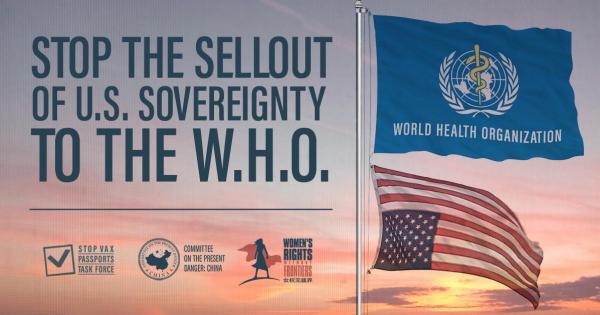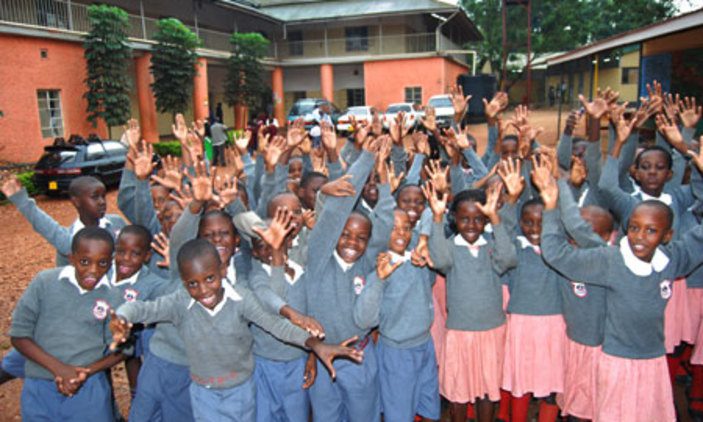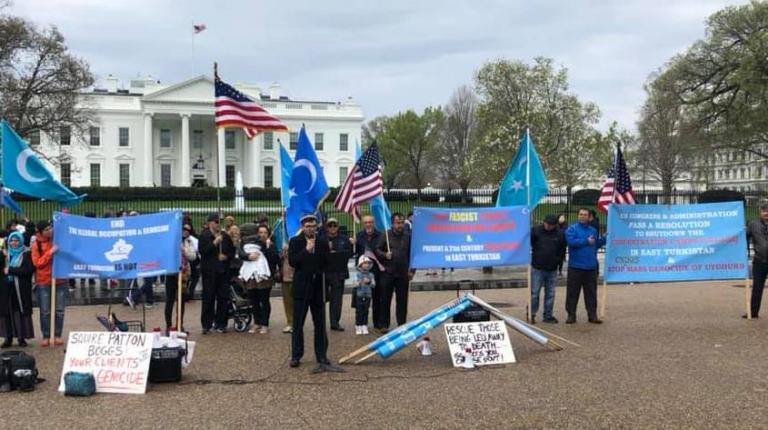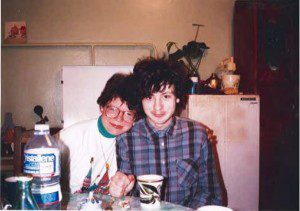
This morning I saw the video footage that has recently been published by The Truth Division of Bernie Sanders extolling bread lines. Sanders, with more hair, talks about Nicaragua and how, “as poor as Nicaragua is,” one of the “nice” things that he saw was that as a result of “direct government policy in terms of the distribution of food, people are not hungry by-and-large.” (That “by-and-large” can cover a multitude of sins!)
Sanders continues that whereas American journalists lament the poverty of countries where people “are lining up for food,” he believes bread lines are a good thing! In other countries, he says, only the rich get food and the poor starve to death. You’ve heard of “rice-bowl Christians” — the Leftist concept that no one would ever consider embracing Christianity other than for a handout? Considering Senator Sanders’ disapproval of charities, in his utopia there would definitely be no rice-bowl Christians, but plenty of rice-bowl — brown, macrobiotic rice, I’m sure — Socialists.
Leaving economics, free market capitalism, theology, and other such virtues aside, the Sanders’ quote was a nostalgic moment for me. I was transported back to a church mission trip to Moscow in January 1991. In those heady days of Perestroika and Glasnost, life was not as restrictive as it had been, but it was still the Soviet Union. Our team was there to work with a former prisoner of faith and personal hero of mine, Alexander Ogorodnikov. Ogorodnikov, who had spent nine years in the Gulag, was starting the first charity soup kitchen in the Soviet Union, amazingly, with the Supreme Soviet’s blessing.
The four men on our mission team stayed at the flat of one of Ogorodnikov’s colleagues in the Christian Democratic Union of Russia (CDUR). Another colleague knew a place where my teammate Andrea and I could stay. It was the flat of a family that had gone to visit relatives in Romania and left their fifteen year old son, Sasha, at home. Through Sasha, who spoke English fluently, Andrea and I learned about the day-to-day life of a citizen in the Soviet Union.
We had seen many lines in Moscow wherever we went. Long lines, and the automatic response “it is very difficult” to every proposal we made were now familiar occurrences. But our first up-close experience with people in line for food was on the evening we took Sasha to Pizza Hut. In 1991 Pizza Hut was still a novelty in Moscow. Men, women, and children were in a queue that stretched around the block when we arrived. But Sasha led us to the other side of the building where there was no line at all.
“Why don’t some of those people come to this side?” I asked. It was very cold to be standing outside.
“They don’t have American dollars,” Sasha explained. “That’s the ruble side; this is the US dollar side.”
Sasha was excited. He had never been in the US dollar section of Pizza Hut before and assured us that it was much nicer than the section for the rubles possessors. One would be tempted to think: Those ugly Americans, lording it over the Russians, getting preferential treatment! But the US dollar section of Pizza Hut was full of Soviet citizens (Party members?), all flush with American currency. Soviet equality.
The next evening, Andrea and I got back to the flat after a busy day with Alexander Ogorodnikov and our team, looking at potential sites for the soup kitchen and visiting an orphanage. Sasha was not home. We were starting to worry, when finally he rushed in with a shopping bag.
Andrea asked him where he had been and Sasha told us that he had been waiting in line for hours for meat. I asked him what kind of meat.
“The only kind!” Sasha exclaimed.
I thought about the long refrigerated cases of roasts, chops, loins, filets, etc. as well as the prepared deli meats and frozen meat entrees in our American supermarkets. And the only lines…checkout lines of people with laden grocery carts.
Senator Sanders may think that the bread lines are a great idea. He may think that the Almighty State should provide for the needs of the dependent citizens, and that, if properly educated, the citizens will be happy with that arrangement. But my glimpse of life even in the twilight years of the Soviet Union showed otherwise.
Although Sasha had to wait in line for meat, and if he had not been with Americans with US dollars, he would have only been able to eat pizza after waiting an eternity to enter the rubles’ side of Pizza Hut, he revealed to us the small acts of defiance with which he and his parents and sister kept their sanity and their sense of humor.
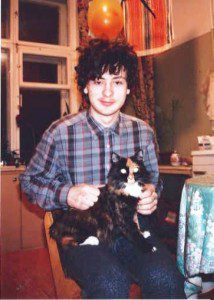
(Photo by Faith McDonnell)
Every day, a fresh new issue of Pravda, which was, of course, the official newspaper of the Communist Party of the Soviet Union, was torn into strips and placed in the family’s cat’s litter box. Sasha told us his father said that was “the only thing it’s good for!”
Sasha also took pride in introducing Andrea and me to his three pet rats, Lenin, Marx and Engels. He had trained the rats to dance when he played the recorder. A nicely symbolic reversal.
In turn, we told Sasha about life in America and its different regions. I told him about the beauty of the White Mountains in New Hampshire and the rocky Maine coast. Andrea described Southern California and Capitol Hill. He listened with great interest and said how he would like to someday visit the United States. He was sad when it was time for us to leave to go home. We were sad to say goodbye to him, too.
I don’t believe State-distribution of bread is a good thing. I believe that for those who need help, the Body of Christ should be at the forefront of civil society, facilitated by organs of local government, to help those in need — and to help them get out of need wherever possible. But nevertheless, I’m glad I heard about Bernie Sanders’ bread line fantasy this morning. It brought back memories. I hope Sasha made it to America.


